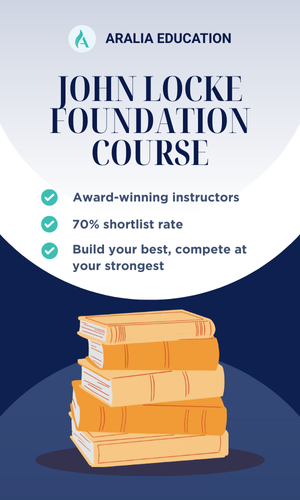This article explores Canada’s nine highest-paying university degrees by average employment income (according to the 2021 Canadian Population Census), providing you with the insights you need to make informed decisions about your academic path. Degrees in specialized areas, such as law, medicine, and engineering, consistently yield high average incomes, making them some of the most competitive and sought-after programs in the country.
Aralia Empowers Students from Canada
1. Legal Research and Advanced Professional Studies (post-LLB/JD)
When it comes to the highest-paying university degrees in Canada, Legal Research and Advanced Professional Studies (post-LLB/JD) holds the top position with an impressive average income of $109,800.
This category primarily refers to post-graduate legal education, such as a Master of Laws (LLM), Doctor of Juridical Science (SJD/JSD), or highly specialized certifications and programs designed for legal professionals. Unlike the Juris Doctor (JD) or Bachelor of Laws (LLB), which are entry-level professional degrees for aspiring lawyers, these advanced studies focus on in-depth legal research, specific areas of law (like international, corporate, taxation, human rights, or environmental law), or preparing individuals for academic careers in law.
Admission to these post-LLB/JD programs is highly competitive, requiring a strong academic record from a prior law degree, often coupled with professional experience. The coursework is rigorous, demanding advanced analytical skills, critical thinking, and extensive independent research. Students are expected to contribute original thought and deepen their understanding of complex legal issues.
Graduates with advanced degrees in legal research and professional studies often pursue diverse and impactful careers. Here’s a look at typical legal roles and their average salaries in Canada:
- Attorney/Lawyer (General): With some experience, the average salary for a lawyer in Canada is around ~$120K/yr.
- Legal Counsel: Often working in-house for corporations or government bodies, legal counsel roles typically yield average salaries of approximately $100K to $150K/year. These roles often require specialized knowledge gained through advanced degrees.
- Litigation Attorney: Specializing in courtroom representation, litigation attorneys can earn an average of approximately $82K – $133K/yr.
- Senior Associate/Partner: As lawyers gain significant expertise, especially with advanced specializations, they can climb the ranks to senior associate positions and potentially partner roles in law firms. Salaries at this level can vary widely but are significantly higher, potentially reaching $182K or more for partners in top firms.
2. Dentistry
With an average employment income of $71,600, a degree in Dentistry (Doctor of Dental Surgery – DDS, or Doctor of Medicine in Dentistry/Doctor of Dental Medicine – DMD) offers a financially rewarding and highly respected career path.
Dental school programs encompass a wide range of subjects, including anatomy, physiology, pharmacology, microbiology, and oral pathology. Students gain hands-on clinical experience in a variety of dental procedures. The curriculum emphasizes both scientific knowledge and the development of intricate manual dexterity.
Typically, gaining a DDS or DMD in Canada requires 4 years of intensive study following a minimum of 2-4 years of pre-dental undergraduate university education, often in science-related fields. For those aspiring to become dental specialists (e.g., orthodontists, oral surgeons, periodontists), an additional 2 to 3 years of post-graduate residency or specialty training is necessary after completing dental school.
Entry into Canadian dental schools is highly competitive. Applicants must demonstrate exceptional academic performance, particularly in science courses, and achieve strong scores on standardized admissions tests, such as the Dental Aptitude Test (DAT).
Graduates with a DDS or DMD have earning potential that grows significantly with experience and specialization. Here’s a look at typical roles and their average salaries in the Canadian dental field:
- Associate Dentist: Many new graduates begin their careers as associate dentists in established practices. Entry-level salaries for general dentists typically range from $75,000 to $120,000 or more annually, varying by location and practice type.
- General Dentist (Experienced): With a few years of experience, a general dentist can expect an average salary of around $130,000 to $180,000.
- Dental Practice Owner/Principal Dentist: Practice owners have the potential for significantly higher earnings, as they manage the business and retain a larger portion of the revenue. Incomes for practice owners can range from $200,000 to over $300,000 annually, depending on the size and success of the practice.
- Dental Specialists: Pursuing a specialization can lead to the highest earning potential in the field of dentistry, depending on the speciality you prefer.
3. Medicine
With an average income across all positions of $96,000 and an average of $101,300 for MD graduates, the medical profession in Canada is undeniably one of the most rewarding fields of study. Rigorous training is required to become a doctor, specialist, or surgeon, each of whom plays a critical role in diagnosing, treating, and preventing human diseases.
The journey to becoming a medical doctor begins with a Doctor of Medicine (MD) degree, a comprehensive program encompassing a wide range of medical sciences, including anatomy, physiology, pharmacology, pathology, and clinical medicine. Students learn diagnostic techniques, patient management, ethical considerations, and communication skills through a combination of lectures, laboratory work, and extensive clinical rotations in hospitals and clinics. After receiving their MD, aspiring physicians enter specialized medical residency programs, where they gain intensive, hands-on training in a specific medical or surgical discipline.
The path to becoming a fully licensed physician in Canada typically starts with 3-4 years of pre-medical undergraduate university studies. This is followed by 3-4 years to complete the MD degree. After obtaining the MD, graduates must complete a residency program, which can last anywhere from 2 to 7 years or more, depending on the chosen specialty (e.g., family medicine is typically 2 years, while surgical specialties or subspecialties can be much longer).
Admission to Canadian medical schools is extremely competitive, requiring exceptional academic records, strong scores on the Medical College Admission Test (MCAT), significant extracurricular involvement, research experience, and demonstrated volunteerism or leadership.
The career progression in medicine typically involves transitioning from residency to general practice or specializing further, with significant increases in earning potential as one gains experience and expertise.
- Resident Doctor: During their residency, doctors are paid a stipend. While not full physician salaries, these vary by province and year of residency, generally ranging from $60K to over $115K
- Family Doctor/General Practitioner (GP): After completing a 2-year residency in Family Medicine, GPs’ income can vary based on practice model, but average annual incomes generally range from $180K to $320K.
4. Engineering
With an overall average income of $82,400, an engineering degree is a powerful credential in the Canadian job market. Engineering encompasses a vast array of disciplines, all focused on applying scientific and mathematical principles to design, innovate, build, and maintain solutions for complex problems. It’s a field that drives progress in everything from infrastructure and energy to technology and industrial development.
An engineering degree prepares students to tackle real-world challenges through problem-solving, design, and analysis. While specific curricula vary by specialization, common foundational elements include advanced mathematics, physics, chemistry, computer science, and core engineering principles. The field consists of a multitude of specializations, each with its unique focus:
- Engineering (General): $99,200
- Civil Engineering: Design and construct infrastructure like roads, bridges, and buildings, earning an average annual income of $73,200.
- Electrical, Electronics, and Communications Engineering: Work with electricity, electronics, and telecommunications systems, with an average income of approximately $80,600
- Chemical Engineering: Develop processes to produce chemicals, fuels, drugs, and more, with an average income of around $86,400
- Mechanical Engineering: Design, analyze, manufacture, and maintain mechanical systems for fields including computer science, mining, industry, geology, biomedicine, and software engineering. Mechanical engineers earn an average income of $74,700
In Canada, an undergraduate Bachelor of Engineering (B.Eng.) or Bachelor of Applied Science (BASc). Many programs also offer co-op, integrating paid work experience into the curriculum. For those wishing to specialize further or pursue research, master’s (M.Eng., MASc) or doctoral (Ph.D.) degrees can add another 1-5+ years of study.
Engineering programs are highly sought after and can be quite competitive, particularly at top universities. Success in these programs demands strong analytical skills, a solid aptitude for mathematics and science, and excellent problem-solving abilities.
5. Biomedical Science
Degrees in biomedical science are crucial for advancing healthcare, offering graduates the opportunity to contribute to scientific discovery and patient well-being while securing a robust financial future. The overall average income within the field is $61,800.
Biological and Biomedical Sciences focus on understanding living organisms and applying biology to human health and medicine. Some examples of majors are:
- Pathology: The study and diagnosis of disease through the examination of organs, tissues, cells, and bodily fluids. The average annual income is approximately $78,100.
- Pharmacology and Toxicology: The study of how drugs interact with biological systems and the adverse effects of chemicals on living organisms. The average annual income is around $79,000.
Entry into these graduate-level programs typically requires a bachelor’s degree in a relevant science field (e.g., Bachelor of Medical Sciences, Biology, Biochemistry). Master’s degrees (MSc, MHSc) in fields like pathology, oncology, or pharmacology typically require 1 to 2 years of full-time study. Many include a significant research or practicum component. Doctoral degrees (PhD) in these areas are research-intensive and can take 3-5+ years to complete after a master’s or bachelor’s degree.
Get a Head Start on Your Future Career
6. Economics
With an average income of $79,300, an economics degree equips graduates with highly transferable skills that are valued across numerous sectors.
An economics degree delves into the principles that govern the production, distribution, and consumption of goods and services. Students explore both microeconomics (the study of individual choices, firms, and markets) and macroeconomics (the study of national and global economies, including topics like inflation, unemployment, and economic growth). The curriculum places a strong emphasis on quantitative analysis, statistical methods (econometrics), economic modeling, and critical thinking.
A bachelor’s degree in economics (BA or BSc) typically takes 3 to 4 years of full-time study in Canada. Many programs offer co-op options, providing valuable paid work experience. For those aiming for specialized roles, higher-level positions, or careers in academia and research, a master’s degree (1-2 years) or a PhD (4-6 years) in Economics is often pursued.
Economics degrees open doors to a broad range of careers in both the public and private sectors. Graduates are highly sought after for their analytical capabilities, data interpretation skills, and understanding of market dynamics.
- Entry-Level Roles (e.g., Junior Analyst, Research Assistant): New graduates can expect starting salaries from $54,051
- Economists: Professionals working as economists, particularly in government agencies (federal or provincial) or large corporations, conduct economic analysis, forecasting, and policy development. The average salary for an economist in Canada ranges from $93,981 to $168,917.
- Financial Analyst: They evaluate investment opportunities and financial performance. Average salaries for financial analysts in Canada range from $70K to $90K.
- Data Analyst: With their strong quantitative and statistical background, economics graduates are well-suited for data analysis roles. Average salaries for data analysts in Canada range from $54K to $78K, with senior data analysts earning $100K or more.
- Consultant: Many economics graduates enter consulting, providing expertise to businesses and organizations on economic strategy, market entry, and operational efficiency. Salaries vary widely based on the consulting firm and experience, but can be competitive.
7. Computer Science
In an increasingly digitized world, the demand for professionals who understand and can build the fabric of our technological infrastructure is at an all-time high. Computer science is a foundational degree with broad applications and a substantial average income of $81,300.
A computer science degree is a deep dive into the theoretical and practical aspects of computation and its applications. It encompasses the study of algorithms, data structures, programming languages, software design, computer architecture, and operating systems. Beyond these core fundamentals, students often specialize in rapidly evolving areas such as artificial intelligence (AI) and machine learning (ML), data science, cybersecurity, software engineering, and web development.
Graduates with a computer science degree are highly versatile and can pursue a wide array of roles across almost every industry, from tech giants to finance, healthcare, and entertainment. Their career progression often sees significant salary increases with experience and specialization.
- Entry-Level Software Developer/Programmer: New graduates’ starting salaries range from $67K to $105K.
- Data Scientist: Average salaries for Data Scientists in Canada are around $76K to $140K.
8. Management Science
A degree in management science offers a robust foundation for a career focused on strategic decision-making and operational excellence, ensuring graduates are well-equipped for leadership and high-earning positions. The overall average income is $109,700.
Management science is a multidisciplinary field that applies quantitative methods, analytical models, and computer science techniques to solve complex problems in business and other organizations.
A bachelor’s degree in management science or a closely related field typically takes 3 to 4 years of full-time study in Canada. Many programs are offered within business schools and may include co-op placements, providing practical experience. For those aiming for more advanced analytical or leadership roles, a master’s degree (such as an MSc in Management Science, Business Analytics, or an MBA with a quantitative focus) typically takes 1 to 2 years to complete.
9. Real Estate Development
Planning to Pursue One of These Top Degrees? Start Preparing Today with Aralia
Achieving a high-paying career begins with the right academic foundation—and that foundation starts now. At Aralia Education, we offer personalized programs that help high school students gain the knowledge, skills, and credentials to stand out in competitive university admissions. Whether you’re aiming for a future in law, medicine, engineering, or finance, our expert instructors and proven curriculum can guide you every step of the way.
From writing research papers to acing AP, IB, and standardized tests, Aralia students are well-prepared to gain admission to top universities in Canada, the U.S., and beyond.








